
In today's post, Visual Studio Live! Orlando conference co-chairs Brian Randell, Rocky Lhotka, and Andrew Brust explain why you should join us in November!
"I wanna rock and roll all night, and party every day" is how the band Kiss sings it. But the reality of our world is that hard work, with judicious amounts of fun in the sun, is a more realistic approach. Our industry, like much of the world, is on a non-stop forward-moving path. Everyone wants more and you need to be prepared to do more on the Web, with mobile devices, desktops, and servers. But how?
Windows 10 is mature, having had three major updates, with a fourth coming this fall. Users and organizations are moving toward widespread adoption. With Visual Studio 2017, Microsoft has started a more rapid update cadence while shipping its own "insiders" version of preview builds. SQL Server, Team Foundation Server and Office are all providing updates constantly. And anything that's in the cloud—from databases to artificial intelligence to Web services—will have had multiple releases since you last looked at them.
As in years past, we think there's a great way to digest these changes and seize their collective opportunity, and that's to hear about them directly from the finest expert speakers in the business.
We're Brian Randell, Rockford Lhotka and Andrew Brust and, as Conference Co-Chairs for Visual Studio Live! Orlando, we'd like to personally invite you to join us this November at the Royal Pacific Resort in Orlando, FL, where we'll have some of the best content and speakers that you'll find at a technical conference.
Our 2017 stop in Orlando promises to be fantastic, with a great set of sessions on: ASP.NET Core, Web Client (HTML5, JavaScript, Angular, and more), Cross-Platform Mobile Development, ALM and Team Development, DevOps, Native Client, Azure / Cloud Computing, Software Practices, and more. Naturally, as Microsoft updates tools like Visual Studio, you'll find updated sessions covering the latest tools, tips, and tricks.
We've got two new hands-on workshops covering Angular 2 and Xamarin development. We've got workshop content, covering DevOps and Artificial Intelligence, Cross-Platform Distributed Application Architecture, Service-Oriented Technologies, Angular Fundamentals, and Building Microservices with Docker Containers on Azure. All of our sessions and workshops drill deep into the new subjects you need to master as well as the fundamentals that are always important.
Plus, Visual Studio Live! is once again a part of Live! 360, which means we've worked with the other conference chairs to ensure our content is aligned with the co-located technology tracks within the broader event. This gives you the unique chance to explore SQL Server, SharePoint, Modern Apps and IT Pro content in addition to the leading-edge and relevant developer education you’ve come to expect from Visual Studio Live!
Microsoft and its developer technologies are poised to move into the future, and you’ve got to keep up with the changes. Visual Studio Live! Orlando provides you with a great opportunity to get live content and interaction with independent experts. Don’t you owe it to yourself, your team, and your customers to be ready with the knowledge to build the best solutions you can?
We hope to see you there!
Brian A. Randell
Partner, MCW Technologies
Rockford Lhotka
CTO, Magenic
Andrew Brust
Senior Director, Market Strategy and Intelligence, Datameer
Visual Studio Live! Conference Co-Chairs
Posted by Lafe Low on 08/08/2017 at 2:57 PM0 comments
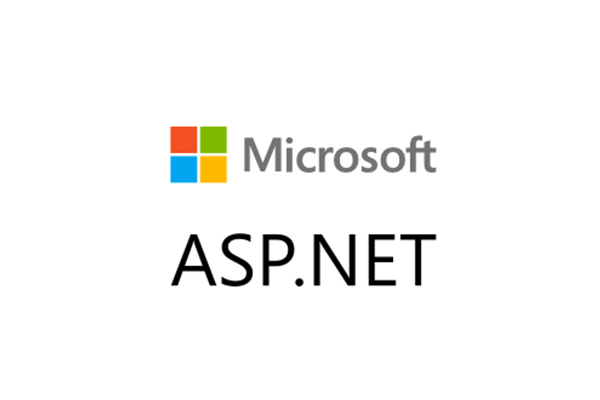
There's certainly no shortage of resources on-line when it comes to ASP.NET. In fact, diving into all the ASP.NET blogs out there can be a bit overwhelming at first. There are so many individual bloggers and posts. Many are "official" Microsoft blogs or blogs run by Microsoft insiders, but that certainly doesn't mean they lack substance or value. Even the official Microsoft blogs mentioned here are more substance than sizzle, more source code than sales pitch.
Official ASP.NET Community
Here's where Microsoft hosts its official team ASP.NET blog, as well as some by ASP.NET insiders and independent bloggers. The list includes
Scott Guthrie (who has spoken at Visual Studio Live! events),
Ricardo Peres,
Bertrand LeRoy, and
Nikolaos Kantzelis. It also links you to
ASP.NET Monsters, Andrew Lock's
.NET Escapades, and Armen Shimoon's
.NET Liberty.
Recent posts include a Channel 9 presentation that dives deep into Azure Analysis Services programmability and automation. In this clip, Christian Wade and Scott Hanselman talk about some of the programmability APIs and automation opportunities in Azure Analysis Services. The intent is to help enable integration with DevOps processes and enhanced application lifecycle management.
Other posts on the site cover topics like Integration Testing with Entity Framework Core and SQL Server and Generic Repository Pattern In ASP.NET Core. Then of course there’s also content like Three FREE Training Courses on ASP.NET Core from Microsoft Virtual Academy, which comes from Scott Hanselman's blog.
.NET Web Development and Tools Blog
This too is an official Microsoft blog, but it still has some great detailed content on the ins and outs of ASP.NET. While there are product-related announcements like Announcing Microsoft ASP.NET WebHooks V1 RTM and New Updates to Web Tools in Visual Studio 2017 RC, there are also posts digging deep into specific topics like Client-side debugging of ASP.NET projects in Google Chrome and Bearer Token Authentication in ASP.NET Core.
Ode to Code
Scott Allen's Ode to Code is an excellent resource. Scott’s easy open style can help guide you through some of the more complex topics related to ASP.NET. Some of his recent posts have covered AddFeatureFolders and UseNodeModules on Nuget For ASP.NET Core, Updated Videos for ASP.NET Core and Database Migrations and Seeding in ASP.NET Core.
Fear and Loathing
I particularly like the tone of this blog, which describes itself as "Gonzo blogging from the Annie Leibovitz of the software development world." Perfect. Bil Simser, the blogger behind the "Annie" and "Hunter," dives deep into topics like automatically publishing NuGet packages from GitHub. While it appears he hasn’t posted too much recently, there’s still good content on there. Here's a sample of his tone: "There must be a better way. We have the technology. We have the capability to make this process easy."
I'll keep searching for more ASP.NET blogs, but if you have one you really like, shoot me an email at [email protected] and I'll add it to the list.
Posted by Lafe Low on 01/25/2017 at 1:30 PM0 comments
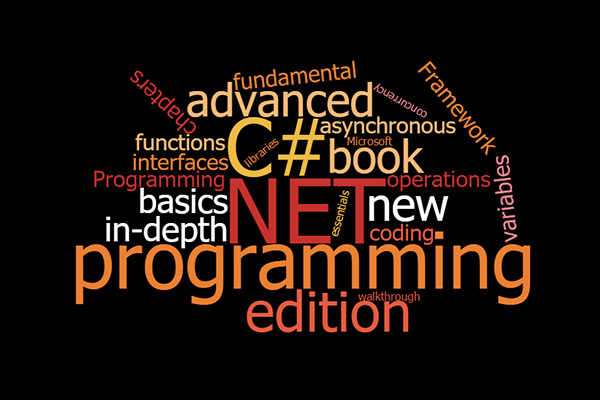
Being a developer isn’t easy. Learning new languages isn’t easy. Mastering your language of choice isn’t easy. Thankfully, for all these endeavors, there is help available. If you’re looking to start or beef up your library of C# books, here are a few you won’t want to miss.
C# 5.0 in a Nutshell: The Definitive Reference
While the word “definitive” gets thrown around a lot, this one seems deserving of the term. Throughout its previous editions, and indeed for this current fifth edition, the text has been extensively reviewed by C# experts both inside and outside Microsoft, including Eric Lippert and Jon Skeet. This edition has new and updated sections on concurrency, threading, parallel programming, and C# 5.0’s new asynchronous functions.
This book covers all the basics, such as syntax, types, and variables and other fundamental elements of C#. It covers the range and also gets into more advanced topics such as unsafe code and type variance. There are three chapters in this edition that cover LINQ, as well as in-depth coverage of code contracts, dynamic programming, parallel programming, and native interoperability. If you’re only going to have one C# book, this wouldn’t be a bad choice.
C# 6.0 and the .NET 4.6 Platform
So much has happened on the C# and .NET front, the authors of this text have completely rewritten and revised this edition as C# 6.0 and the .NET 4.6 Platform—now in its seventh edition. This edition reflects the latest changes to the C# language specification and new advances in the .NET Framework. There are new chapters covering the important new features of .NET 4.6, including:
- Refined ADO.NET Entity Framework programming model
- IDE and MVVM enhancements for WPF desktop development
- Updates to the ASP.NET Web APIs
This edition intends to provide a comprehensive foundation in the C# programming language and the core aspects of the .NET platform. There are also extensive overviews of technologies built on top of C# and .NET (including ADO.NET and Entity Framework, Windows Communication Foundation (WCF), Windows Presentation Foundation (WPF), ASP.NET (WebForms, MVC, and WebAPI)). There’s complete coverage of the .NET 4.6 Platform and C# 6. You’ll also learn about XAML, Visual Studio 2015, and the new Windows Runtime. Incidentally, this edition was co-authored by Philip Japikse, a veteran Visual Studio Live! presenter.
The C# Player's Guide
This one is good if you’re just getting into coding with C#. It starts out with some of the basics of C#, but takes you all the way through into some of the more advanced aspects of the language. It opens with an introduction to C#, as well as a step-by-step walkthrough and explanation of coding a C# program.
Then the book gets into procedural programming, including variables, math operations, decision making, looping, methods, and an in-depth look at C#’s typing system. It also covers some fundamental aspects of object-oriented programming, such as inheritance, polymorphism, interfaces, and generics. It moves through some more advanced features of C#, including working with the .NET framework, managing compiler errors, and debugging. This edition of the book is updated to C# 6.0, .NET 4.6, and Visual Studio 2015.
And these three C# books, while all excellent references, clearly aren’t the only options. If you’re looking for a good place to start, there’s an impressively comprehensive Wikibook on C#. This one also takes you through the basics, and then gets into classes and advanced functions. There are also a handful of helpful links along with this entry.
Looking for some free C# books? Here’s a link where you can download them for free. The list includes Fundamentals of Computer Programming with C#, C# Essentials, and Object Oriented Programming Using C#. So there’s clearly no shortage of resources to help you delve deeper into C# programming. Take a look around and you’re sure to find one that suits your level.
Posted by Lafe Low on 01/11/2017 at 1:30 PM0 comments
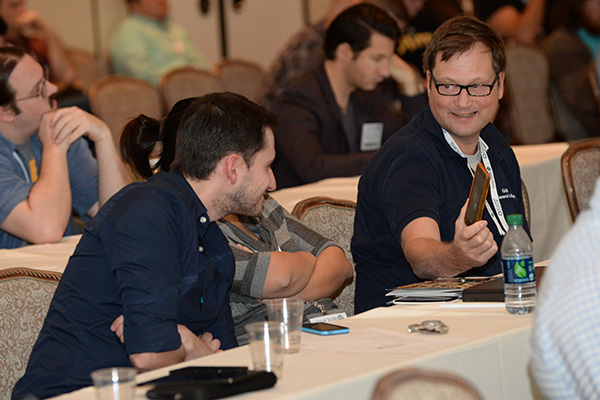
The mobile development world seems to change daily.
After all, there’s always a new device, framework, or "open source" framework. It can often have you scratching your head trying to keep up!
To help you stay up to date on the latest and greatest changes, here are some of the best mobile development blogs we recommend following, from native to cross-platform:
Native
Windows Developer Blog: The Windows Developer Blog is written by various members of the Windows development team, and features not only mobile, but also IoT, PC and tablet-related posts as well.
Android Developers Blog: Covering various technical topics, this blog is written by various Google employees, including the Google Play team, the Android frameworks team, and the Android developer relations team.
iOS & Swift: Since so much of what is covered at Live! 360 is .NET and Microsoft-related, iOS can be, well, tricky. Never fear, Ted Neward is here! Ted is ever-present at our events, giving his “busy developer’s guide” to everything from TypeScript to Swift.
Cross-Platform
Xamarin blog: It may go without saying, but if you’re looking for anything related to Xamarin, be sure to first check out the official Xamarin blog.
James Montemagno’s blog: He is truly Mr. Xamarin, having presented at Visual Studio Live! on some of the latest Xamarin-related news. This is a good blog to follow if Xamarin is your mobile platform.
Joshua Morony writes extensively on HTML5 mobile application development. As a professional mobile developer, he shares his insights and experiences on using popular HTML5 mobile frameworks like Sencha Touch, Ionic and Phaser. On this blog, you’ll find posts on Local Storage Options for PhoneGap Applications, Creating Google Maps Components in Ionic 2, and Using the HTML5 Canvas Element in Sencha Touch.
The Polyglot Developer is a programming blog run by Nic Raboy. This blog features a range of tutorials covering important topics related to mobile and web application development as well as game development.
While we know the universe of mobile blogs is endless, we hope this list provides you with some valuable go-to resources in your mobile development pursuits!
Posted by Lafe Low on 11/21/2016 at 1:30 PM0 comments
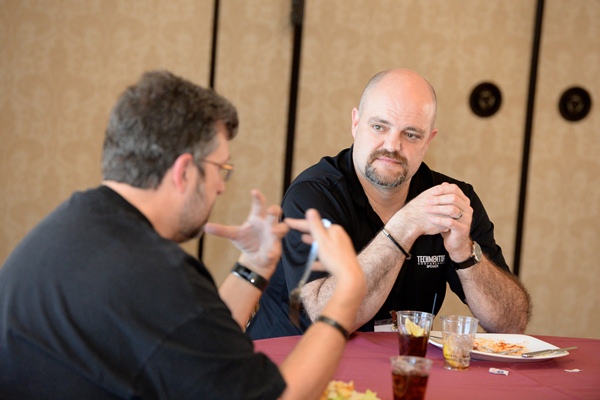
You think the 2016 presidential debates were contentious? Try sitting between a couple of IT guys debating whether they’re better off keeping their apps and data on-premises or stored in the cloud. When it comes to the topic of cloud vs. on-premises, things can get heated and ugly. I’d recommend wearing a helmet.
Actually, there are cost, security and operational benefits to consider for each approach. Every organization is different. Think of your company and what makes it unique. What do your day-to-day business operations look like? How much data are you managing? How fast is that data store growing? What’s your relative security posture and overall risk status? Your answers may be similar to other alike businesses, but ultimately they are uniquely yours. So do the smart thing and keep listening, keep researching, consult the experts, and formulate your own plan.
Defining the Cloud
The National Institutes of Standards and Technology (NIST) produced an informative PDF defining cloud computing. It starts off with definitions of on-premises, hosted offerings and cloud storage, further breaking down what it defines as characteristics of a true cloud offering:
- On-demand self-service
- Broad network access
- Resource pooling
- Rapid elasticity
- Measured service
Further, it describes the service models and types of cloud deployments including Software as a Service (SaaS), Platform as a Service (PaaS), and Infrastructure as a Service (IaaS). Finally, it defines the four deployment models, including Private cloud, Community cloud, Public cloud, and Hybrid cloud. (To review the document in its entirety, please visit the NIST website.)
Which to Choose?
There’s no shortage of resources—and opinions—if you’re in the planning stages of considering your move to the cloud. Cost, security, and controlling access often top the list of concerns when deciding on the balance between cloud storage and on-premises.
A post from Faronics.com states, “Cloud adoption is ticking upward at an ever-increasing rate, and businesses are taking advantage of the benefits that storing data and applications in off-premises environments can provide. In fact, according to recent research from Aberdeen Group, 70 percent of U.S. companies have invested in private cloud solutions, MSPMentor reported. In addition, RightScale’s State of the Cloud 2015 report found that 82 percent of businesses have a hybrid cloud strategy. However, there are some companies that still prefer to deploy their software solutions on-premises as opposed to the cloud. Both approaches offer their own unique advantages, but it may not be easy to distinguish which would be the best for certain types of organizations without the proper consideration.”
You can find several informed opinions if you’re still uncertain. For instance, TechMentor Orlando presenter J. Peter Bruzzese writes, “The debate between operating expense (aka opex, the cloud's approach) and capital expense (aka capex, the on-premises approach) is waged daily at companies. Although there are trade-offs no matter what a firm chooses, it's clear that opex is increasingly favored.”
Clearly the world is moving in that direction. You may be as well, but you have a handful of decisions to make first. These resources can help, but ultimately your situation and your needs are indeed unique.
Posted by Lafe Low on 11/03/2016 at 1:30 PM0 comments
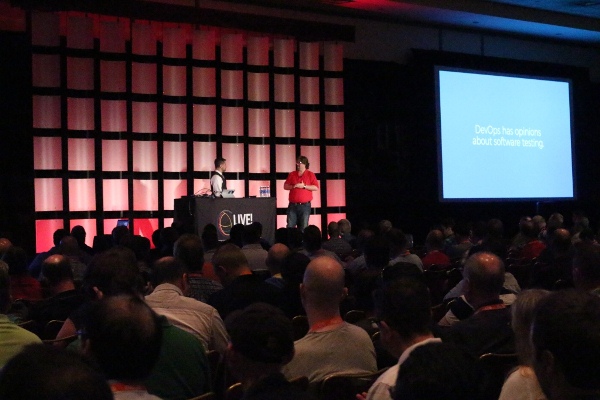
Excitement is mounting for this year’s Live! 360 event in Orlando, December 5 – 9.
Just in case you're not all caught up, here’s a recap of all the Live! 360 Q&A coverage the 2016 speakers have received recently:
John K. Waters, App Dev Trends Co-Conference Chair, Interview with Keyote Speaker Reza Rahman
In March we announced that ADTmag is participating this year in the very popular Live! 360 conference, scheduled for December 5-9 at Loews Royal Pacific Resort at Universal Orlando. This multi-conference conference comprises Visual Studio Live!, SQL Server Live!, Office/SharePoint Live!, Modern Apps Live!, TechMentor and now App Dev Trends 2016. (We don't have the signature exclamation point in this event title, but we're just as excited!)
We're especially thrilled to announced our keynote speaker, Reza Rahman. As many know, Rahman has been one of the chief drivers behind the Java EE Guardians and an expanding effort to encourage Oracle to give enterprise Java the attention it deserves and to preserve the overall interests of the Java EE community.
Read the full story here: https://adtmag.com/Blogs/WatersWorks/2016/09/AppDevTrends-2016-Java.aspx
Michael Remijan Q&A (App Dev Trends)
App Dev Trends/Live! 360 speaker Michael Remijan shares how these will revolutionize the Java collection process, shows how it will change your code and talks about common misconceptions.
Read the full story here: https://adtmag.com/articles/2016/10/12/qa-java-8-lambdas-streaming-apis.aspx
Dan Usher and Scott Hoag Q&A (Office & SharePoint Live!)
Office & SharePoint Live! presenters Dan Usher and Scott Hoag discuss how you can simplify your life with automation.
Read the full story here: https://redmondmag.com/articles/2016/10/26/syncing-office-365-with-azure-active-directory.aspx
Conference Co-Chair Don Jones Q&A (TechMentor)
Don Jones, TechMentor presenter and conference co-chair, discusses some of his observations on how people are using PowerShell, and how they could do a better job.
Read the full story here: https://redmondmag.com/articles/2016/10/17/writing-your-powershell-functions-wrong.aspx
Vlad Catrinescu Q&A (Office & SharePoint Live!)
A Microsoft SharePoint MVP shares his insights on what PowerShell can do for you with Office 365.
Read the full story here: https://redmondmag.com/articles/2016/10/14/powershell-for-office-365.aspx
Still much more to come and we hope to see you in Orlando!
Posted by Lafe Low on 10/27/2016 at 1:30 PM0 comments
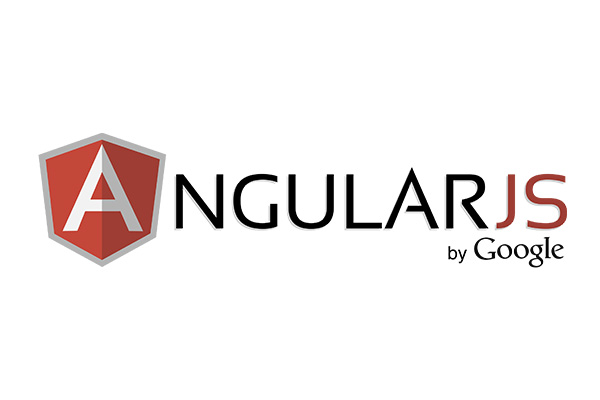
While Angular has been around for a while, finding some good solid resources to support your Angular efforts can be a little tough.
Thankfully, Angular experts—some you may have heard of and some who may be new to you—have filled bookshelves across the world and the blogosphere with some excellent resources.
So to help you refine your skills with this framework, here are three of the best Angular books to include in your reading list:
Intended for those who already have a working knowledge of JavaScript, HTML and CSS, Adam Freeman’s excellent title Pro AngularJS (from Apress) leaves virtually no Angular stone unturned. After introducing some of the more intermediate and advanced features in AngularJS, he dives into a thorough description of the MVC Pattern to separate logic, data and presentation code; creating robust web apps with AngularJS; extending HTML with declarative syntax; extending and customizing AngularJS; as well as testing, refining and deployment processes. One nice thing about Pro AngularJS is that it is platform agnostic. It covers a range of browsers throughout the text.
The AngularJS Web Application Development Cookbook (from Packt Publishing) by Matt Frisbie will get you cooking on your AngularJS-based web apps. The book is full of examples and descriptions. It will provide you with quick answers to your Angular questions, help you with problem solving as you develop apps with Angular, and provide you with plenty of easy to understand examples. Frisbie’s cookbook brings you recipes for architecting AngularJS applications designed to scale, writing robust test suites, creating application modules, syntax and browser tricks, and optimizing your AngularJS creations for maximum performance.
Another title from Packt focuses on interface design. AngularJS UI Development, written by Amit Gharat and Matthias Nehlsen, covers topics such as developing and using responsive layouts and powerful CSS3 frameworks (such as Twitter Bootstrap and Foundation) to design mobile-friendly applications, how to solve some of the common UI design problems, and ensuring your app is sufficiently dynamic by integrating RESTful APIs in AngularJS. This detailed book also delivers a thorough overview of CSS-responsive frameworks, various UI widgets, and Angular internals.
Additional Reading...
You can get a regular dose of Angular expertise by signing up for John Papa’s weekly Angular podcasts. Find him at https://johnpapa.net/. Angular 2 seems to loom large in John Papa’s mind, as it does with many other Angular experts. Recent podcasts have covered Angular 2 in a .NET World, Upgrading from Angular 1.x to Angular 2, Angular 2 Final is Released, and NgModule. All these podcasts are listed like a table of contents, including the original air date. He also lists conferences at which he’ll be speaking and details of other content he is creating or has created. You can see him at Live! 360 in Orlando this December 5-9.
Check out any or all of these resources to hone your AngularJS skills!
Posted by Lafe Low on 10/10/2016 at 1:30 PM0 comments
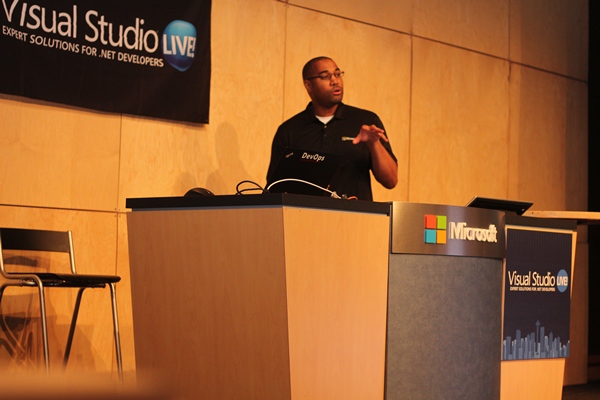
DevOps is all the rage, a new “buzzword” you hear quite a bit these days. Actually, it’s not really a new buzzword, or even a buzzword at all. It’s a carefully considered name for what has been an evolving practice that makes good sense.
DevOps is essentially an evolution of development processes like Agile. It’s a more thoughtful, composed way of developing and deploying applications; much of which depends on automation.
TechMentor co-chair Don Jones elaborated on his take on DevOps at the last TechMentor. "DevOps actually is real," says Jones. "It's not something you can buy. It doesn't come with a contract. It is a real concrete thing. It is something you can do."
Donovan Brown actually had to define DevOps during his interview with Microsoft. He must have defined it well, but he has now been working with Microsoft for several years now. When he spoke at a recent Visual Studio Live! held at Microsoft headquarters, he relayed his definition. "DevOps is a union of people, process and products to deliver continuous value to our customers," he says.
To continue navigating this evolving practice, here are three of the best DevOps blogs you should follow:
Besides his work with Microsoft, Donovan also runs a Devops blog, simply called donovanbrown.com. Recent coverage on his blog includes how to stop wasting time during .NET Core builds, how to change the language mode of an unsaved file in Visual Studio code, and Visual Studio Team Server task types. His blog goes fairly deep and specific, but the breadth of coverage makes this one definitely worth reading on a regular basis.
One post explores a codedUI build validation test in TFS 2015 Integrated Release. In the course of researching this topic, Brown realized he needed to disable three security controls, including:
- Disable the Privacy warning at Logon
- Disable screensaver
- Disable auto screen lock
He was able to bypass those by using some PowerShell scripts to modify the registry values of the BVT machine. “The Registry valued will be reverted on regular update by your companies Group Policies. So we just need to add a PowerShell task before Test Agent installation,” he writes.
Another good stop to learn more about DevOps, again with a focus on the “dev” side, is Shobin Mathew’s Microsoft ALM DevOps blog. This is a similarly technical, development-oriented blog that covers a range of technical specifics like TFS 2015 Integrated Release cross-domain deployment, Windows OS information using PowerShell, and Proxy Server in TFS: Configuration for dev environment and benefits.
Yet another excellent DevOps resource for developers is Eric Anderson’s ericsysmin.com blog. He covers a range of high-level and nitty-gritty topics, including:
- How to Install Ansible on Windows
- How to cloud
- Automate Everything
- "DevOps Really….."
That last one is his definition of DevOps, which also focuses on automation:
“DevOps is not one thing. It’s a plethora of ideas, and practices that have revolutionized Operations and the Release Process. It’s a culture change. DevOps is using development practices and applying them to operations, then using those methods to automate everything. It starts to join both Operations and Development together, consider it as a hybrid, I mean it is DevOps, it’s the joining of Development and Operations. DevOps was created to empower developers to quickly integrate and build environments to test code, and allows the operations teams to quickly deploy and monitor applications just as fast as the developers and QA teams can approve it, thus leading to Continuous Integration and Continuous Deployment.”
And there you have it—DevOps defined. What other DevOps blogs do you regularly follow? Comment and let us know!
Posted by Lafe Low on 10/03/2016 at 1:30 PM0 comments
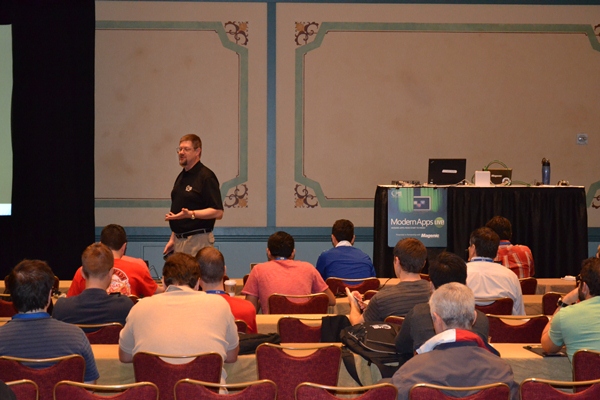
Last but not least of our Live! 360 conference chair blog “take-overs” features Modern Apps Live!, the very successful single-track conference devised by Rockford Lhotka and presented in partnership with Magenic, where he currently serves as CTO.
I happily turn over this post to him to explain the intricacies of modern apps, the need for end-to-end training and other benefits of attending Modern Apps Live!:
Modern applications leverage the power of all client devices from phones to tablets to desktops, new intuitive user experiences, the cloud, and your local computing resources to provide end users with the richest and best experience possible. This type of app is so compelling, and yet so complex to build, that we thought it was worth a conference unto itself.
Modern app development brings a new set of challenges to software developers, designers, managers, architects, and team leads. Many of these apps target multiple client platforms and technologies, and rely on state-of-the-art, server-side platform capabilities. And gone are the days of "cowboy development." Users expect professional quality and performance in apps that are delivered on time with a regular cadence of updates and enhancements. This means we need to apply application lifecycle processes and tools effectively, plus embedded developer and acceptance testing, along with a solid DevOps process.
If all that isn't enough, there's an increasing recognition that the data generated by modern apps can be used in business intelligence, analysis, and reporting in ways never before imagined. Any modern app project should include BI and data analysis right from the start to ensure the data is gathered and stored in a way that can support these critical scenarios.
Modern Apps Live! is unlike any conference you've attended before. It consists of a single track containing sessions that build on each other to provide you with an end-to-end narrative covering all aspects of building modern apps using today's technologies. All of the Modern Apps Live! speakers have worked together as a team to bring you the highest quality content, such that each session builds on those that have gone before. This conference is almost more of a multi-day training session than a traditional conference.
I have personally worked with all of the Modern Apps Live! speakers to put together a series of sessions that bring all these concepts, tools and technologies together. So when you leave the conference you'll have a complete picture of what goes into building a modern app for iPhone, Android, Windows, and HTML5 devices that all interact with state-of-the-art backend services running in public or private clouds.
I also know that many of you wear multiple IT hats at the office, so I invite you to take advantage of the co-located technology tracks offered at Live! 360. This gives you an unprecedented opportunity to focus on not just Modern Apps, but also SQL Server, SharePoint, .NET development with Visual Studio, and even explore IT Pro content – all in a single venue.
There's nothing else like Modern Apps Live!; if you are a software architect, development manager, team lead, or senior developer, you owe it to yourself to attend this event!
Rockford Lhotka
Conference Chair
Modern Apps Live!
Posted by Lafe Low on 09/26/2016 at 1:30 PM0 comments

John K. Waters leads the charge on App Dev Trends 2016 as part of Live! 360 this December. Waters is immersed in all things high-tech and is the editor-at-large for adtmag.com. App Dev Trends is launching as the in-person extension of the magazine’s audience, bringing the trending topics featured daily to life later this year in Orlando. Why should you attend? John explains here:
What do Agile development practices, containerization, continuous integration, cloud computing, enterprise mobility, DevOps, and Big Data have in common? They’re all top-of-mind industry trends that are creating new challenges right now for enterprise software professionals.
That’s the focus of App Dev Trends 2016, an exciting new addition to the enormously popular Live! 360 conference, scheduled for December 5-9 at the Loews Royal Pacific Resort at Universal in Orlando, Florida. Our program adds another dimension to the larger event by focusing on the challenges facing the makers and maintainers of the purpose-designed software that drives organizations in virtually every industry in the world—in other words, enterprise software professionals.
We’ve assembled a powerful agenda for this conference, with sessions and workshops on a range of topics the readers of Application Development Trends have told us are most important to them. There’s also a first for this event: sessions on Java and JVM tools and techniques.
The sessions and workshops will be led by industry experts, analysts, and practitioners with deep knowledge and real-world experience. You’ll see examples and strategies, acquire skills, ask questions, get answers, and rub elbows with peers and pros facing the same challenges you face. And you’ll come away with insights and advice on trends that are already impacting your work and are certain to affect your future.
This is our first ADTmag.com-branded event, and I’m expecting to welcome a range of attendees, from down-in-the-trenches developers to team leaders and decision makers at just about every level.
Looking forward to seeing you at Live! 360 and App Dev Trends 2016!
John K. Waters
Chair, App Dev Trends 2016
Posted by Lafe Low on 09/19/2016 at 1:30 PM0 comments